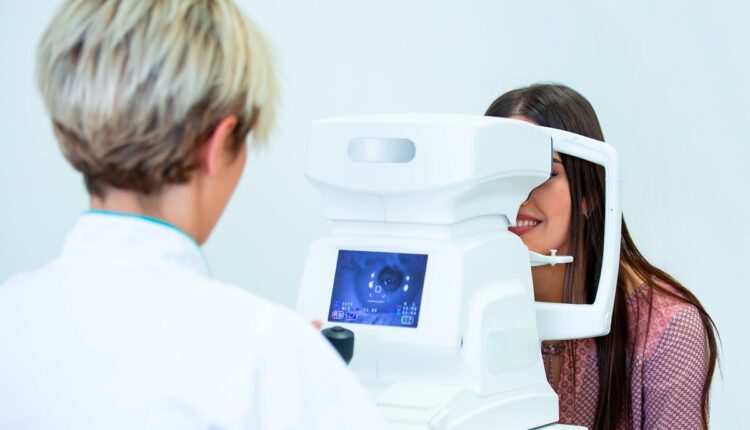Scientists launch new app for early detection of eye diseases that cause blindness
Students from the Universitat Oberta de Catalunya developed an application that detects eye diseases that could cause blindness early
Two students from the Universitat Oberta de Catalunya (UOC) on the master’s degree in Bioinformatics and Biostatistics have developed a mobile application capable of detecting in just a few seconds if a person has a hidden disease that causes blindness.
According to the World Health Organization (WHO), some 2.2 billion people on the planet suffer from some type of visual impairment or blindness, and half of these cases could have been prevented by early diagnosis.
To solve this problem, UOC students have devised a project, which is called begIA, and which allows, for example, to find out if a patient with glaucoma, diabetic retinopathy or cataracts can lead to a total loss of vision through a selfie.
An Artificial Intelligence (AI) analyzes this photograph and issues a diagnosis that, if positive, channels the person who has undergone it to the specialist that best suits their needs. Specifically, begIA is based on a neural network algorithm capable of recognizing in a frontal image of a person’s face taken with a mobile phone, using deep learning techniques, if they have an eye disease.
According to the students who have developed begIA, it arose from a personal experience, after a family member with type 2 diabetes began to lose a lot of vision and that even led him to stop driving and reading. “He developed diabetic retinopathy, an eye disease that causes loss of vision and the incidence of which can be reduced through early diagnosis”, commented these creators, Igor García Atutxa and Francisca Villanueva.
In addition to the early diagnosis of ophthalmological diseases, with begIA professionals can carry out medical monitoring from a distance since, once the correct treatment for each patient has been determined, they can continue to see its effectiveness and the evolution of the pathology through these photographs. In this way, the patient avoids traveling to the health center for examination.
From this institution, they remember that the early diagnosis of ocular diseases requires an examination of the fundus of the eye, which implies that there must be an ophthalmology specialist who had the necessary optical instruments.
Source: dpa
(Reference image source: Unsplash, in collaboration with Getty Images)
Visita nuestro canal de noticias en Google News y síguenos para obtener información precisa, interesante y estar al día con todo. También en Twitter e Instagram puedes conocer diariamente nuestros contenidos


